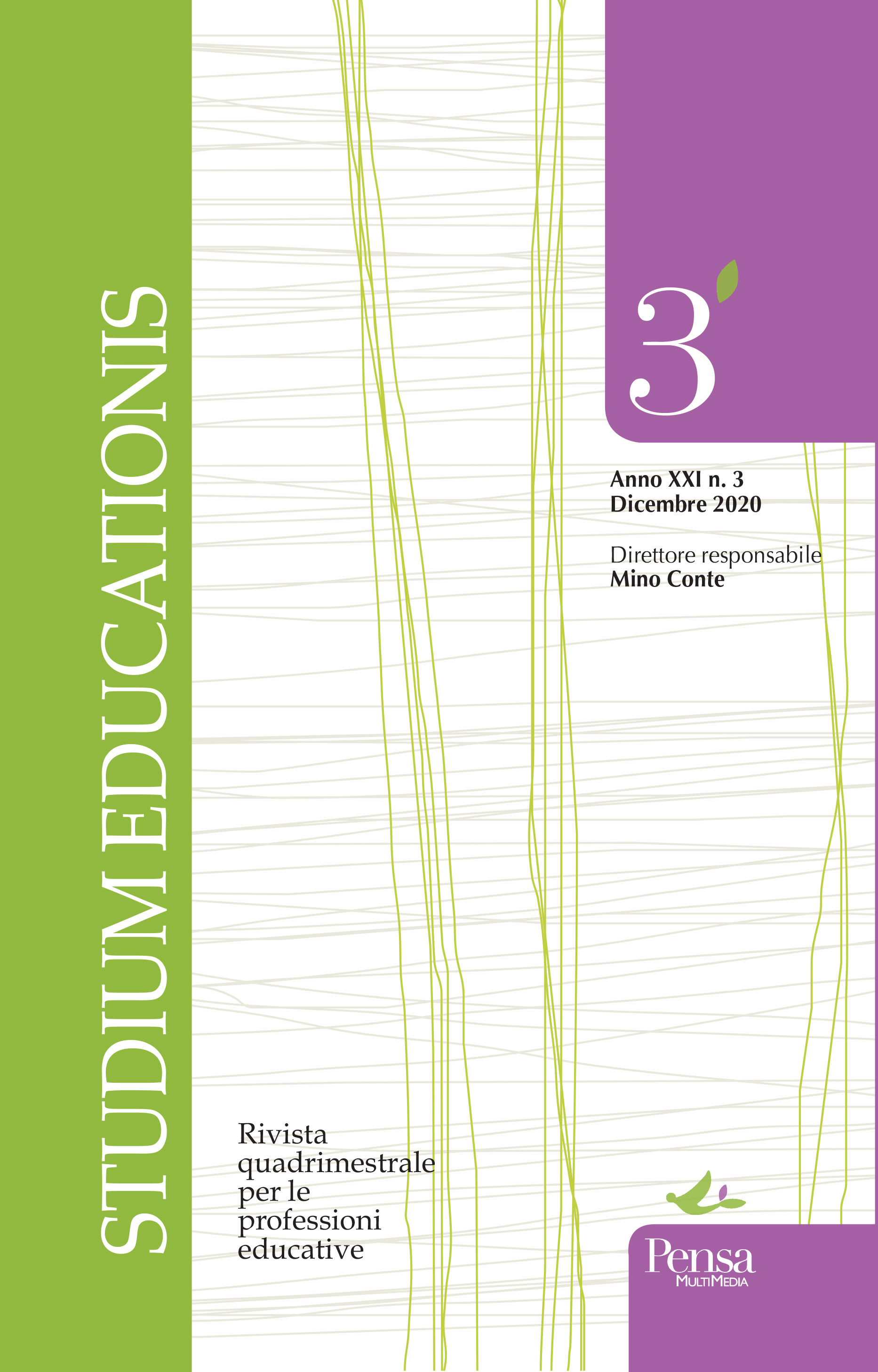Schoolmates in British and Italian post-war cinema: two examples for a historical-comparative study
DOI:
https://doi.org/10.7346/SE-032020-04Abstract
The products of cultural industry may constitute an important documentary resource for a critical-historical study aiming at a rigorous contextualization of educational phenomena. Starting from this assumption, this paper proposes a comparative analysis of two movies depicting figures of young schoolmates in the post-war years: The Guinea Pig (1948), produced and directed by the Boulting brothers and set in an English public school; and Amici per la pelle (1955), directed by Franco Rossi and set in an Italian middle school. The aim of this study is to investigate the ideological relevance of these figures in relation to the historical and cultural context in which they have been constructed.
Downloads
Published
2020-12-14
Issue
Section
STUDI & RICERCHE


